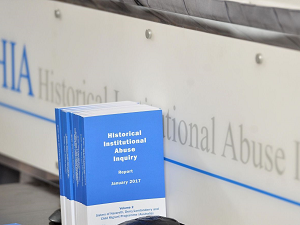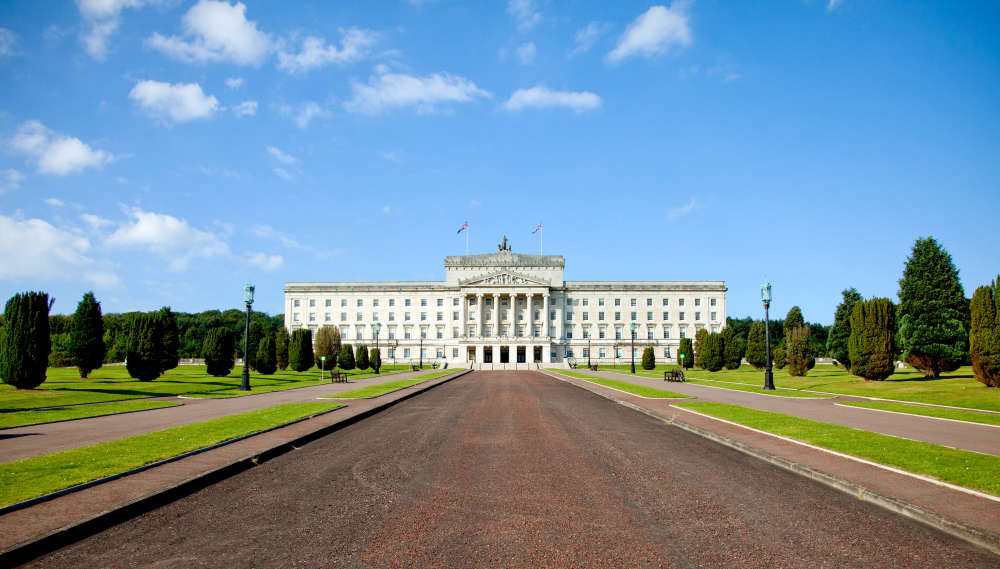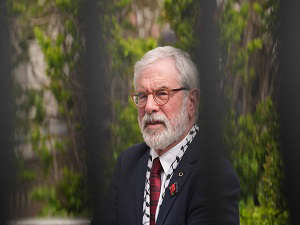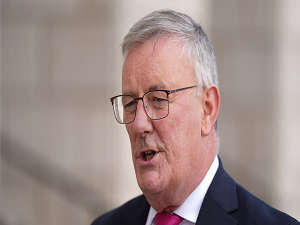
By Rebecca Black, PA
A long-awaited public apology is to be offered by five Stormont ministers to victims of historical institutional abuse next month.
The compromise move comes as the offices of the First and deputy First Minister remain empty following the resignation of Paul Givan, which also forced Michelle O’Neill out of the role.
The public apology was recommended in the final report of the Historical Institutional Abuse Inquiry (HIAI), which was published five years ago.
Mr Givan and Ms O’Neill announced last month that the apology would be given in Parliament Buildings in Stormont on behalf of the powersharing executive on March 11.
"Victims and survivors have waited too long to hear an apology for the awful harm that was inflicted on them as children, and in the years since" - Executive ministers.https://t.co/oFYSOaOTK2
— Q Radio News (@qnewsdesk) February 24, 2022
However, since then the DUP has resigned the first minister role, in protest at the workings of the post-Brexit Northern Ireland Protocol, leading to doubt over whether the apology would go ahead.
It was confirmed this morning that the public apology will be offered by ministers Michelle McIlveen, Conor Murphy, Nichola Mallon, Robin Swann and Naomi Long.
This will be followed by apologies from each of the institutions where systemic failings were found in the inquiry report.
In a joint statement the ministers said March 11 will be a “hugely significant day”.
The apology will be made in the Assembly chamber as victims and survivors watch from the public gallery.
A minute’s silence will also be observed for victims who have since died.
“Victims and survivors have waited too long to hear an apology for the awful harm that was inflicted on them as children, and in the years since,” the ministers’ statement said.
“We want this apology to provide full acknowledgment of the wrong that was done, and the terrible failures that resulted in the abuse of children by the individuals and a system that should have protected them.
“We want to deliver an apology that is meaningful, meets the needs of victims and survivors, and is delivered in a way that helps them to move forward with their lives.
“We recognise that the experience of every victim and survivor is individual, and each have personal views on what they want to be included.
"We are listening to them and working to ensure the apology is developed in line with what they need to hear.
“As many victims and survivors as possible will be present in Parliament Buildings on the day, and we are putting arrangements in place in other regional venues for those who wish to come together to hear the apology.
“It will also be streamed online for all those who wish to watch from home, or across the world.
“We are mindful of the many victims of historical institutional abuse who have sadly died before having the chance to hear an apology delivered, and we have agreed to hold a minute’s silence in their memory on the day.”
Margaret McGuckin, of victims’ group Savia (Survivors and Victims of Institutional Abuse), welcomed the development, but said it had only come after constant lobbying of Stormont.
“We’ve had to march upon Stormont year on year, begging with ministers to get it done,” she said.
“Many HIA victims only wanted someone to say ‘I’m sorry, it was not your fault. We let you down, we failed in our duty of care. We now want to apologise to you’.
“Many victims blamed themselves for what happened in those institutions, they carried the blame and shame and the lifelong pain of living an non-existent life.
“People, like my brother Kevin, who is now so institutionalised he still has the mind of that young teenage boy waiting to grow up and have a life.
“He needs to hear the words ‘We are sorry, it was not you, it was us’. Maybe that would take a little of the shame, pain and blame from his shoulders and place it on those who carried out these vile atrocities on an innocent child, and the religious orders and the state who allowed it to happen on their watch, unchallenged.”



 Man, 54, dies in Co Londonderry crash
Man, 54, dies in Co Londonderry crash
 Gerry Adams awarded 100,000 euro in damages after suing BBC for libel
Gerry Adams awarded 100,000 euro in damages after suing BBC for libel
 Nesbitt not surprised if ‘devastating’ culture in RVH report repeated elsewhere
Nesbitt not surprised if ‘devastating’ culture in RVH report repeated elsewhere
 Pensioner, 82, killed in crash near Omagh
Pensioner, 82, killed in crash near Omagh